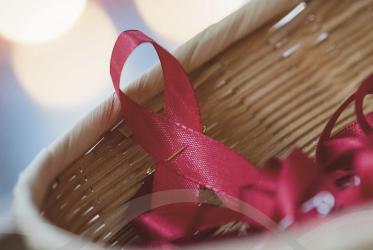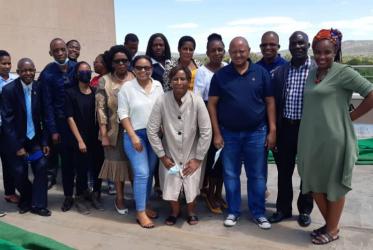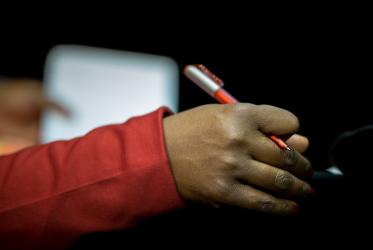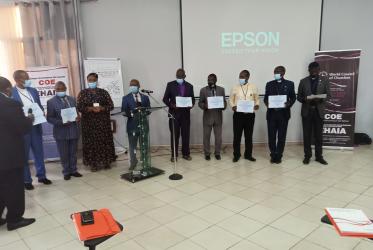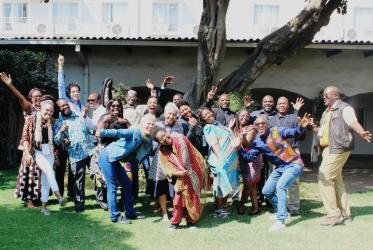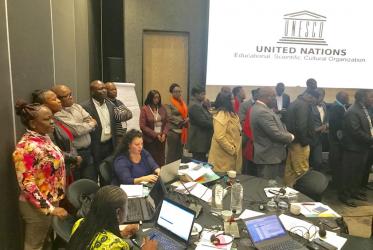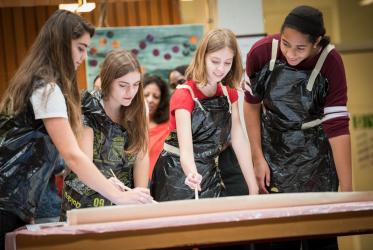Displaying 1 - 20 of 39
28 November 2022
“Gathering in Grief” mourns Rev. Phumzile Mabizela
07 July 2021
WCC mourns passing of Hendrew Lusey-Gekawaku
23 October 2020
Faith and HIV treatment go hand in hand
06 March 2019
On the journey to HIV – bridging gaps, debunking myths
21 February 2019
Media invite: Global collaboration on migrants, refugees and HIV
19 February 2019
WCC-EHAIA pioneer receives honorary doctorate
21 March 2018

